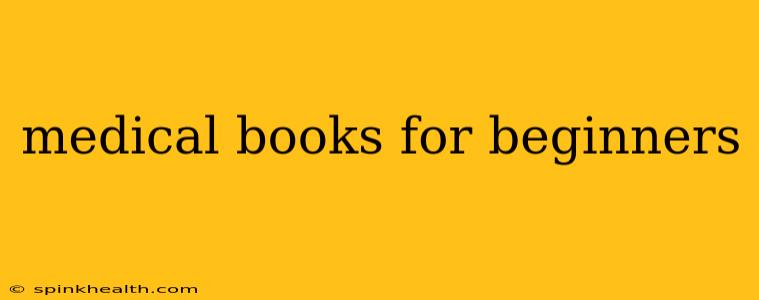So, you're curious about the human body and the magic of medicine? That's fantastic! The world of medical science is vast and complex, but incredibly rewarding to explore. Starting your journey can feel overwhelming, but fear not! This guide will help navigate the initial steps, highlighting excellent medical books perfect for beginners. We’ll cover everything from basic anatomy to common illnesses, ensuring a captivating and informative experience.
What Makes a Good Medical Book for Beginners?
Before we dive into specific recommendations, let's define what makes a medical book ideal for newcomers. A great beginner's medical book should:
- Use clear, concise language: Avoid overly technical jargon.
- Employ plenty of visuals: Diagrams, illustrations, and photos make complex concepts easier to grasp.
- Focus on fundamental concepts: Build a solid foundation before delving into specialized areas.
- Maintain an engaging narrative: Learning should be enjoyable, not a chore!
Top Recommendations: Medical Books Perfect for Beginners
Here are a few excellent books that perfectly fit the bill for those starting their medical exploration:
1. "Gray's Anatomy for Students": While the name might sound intimidating, this book provides a fantastically illustrated and accessible introduction to human anatomy. It's a classic for a reason – its clear explanations and stunning visuals make learning about the body's structures both engaging and memorable.
2. "Human Anatomy & Physiology" by Elaine N. Marieb and Katja Hoehn: This comprehensive textbook strikes the perfect balance between detail and readability. It's a popular choice for introductory college courses, indicating its suitability for self-learners too. It provides an excellent foundation in both the structure and function of the human body.
3. "The Body: A Guide for Occupants" by Bill Bryson: This isn't a strictly scientific textbook, but rather a fascinating and witty exploration of the human body. Bryson's writing style is engaging and accessible, making even complex topics enjoyable to read. It's a great starting point to spark your curiosity before delving into more technical texts.
4. "Medical Terminology for Dummies" by Beverley Henderson: Understanding medical terminology is crucial for anyone interested in medicine. This user-friendly guide provides a clear and simple introduction to medical vocabulary, making it easy to decipher medical reports and conversations.
What are some common medical books for beginners?
Many resources cater to beginners, but the key is finding one that suits your learning style. The books listed above offer different approaches – some are rigorously scientific, while others opt for a more narrative-driven approach. Choosing a book depends on your preferred learning method and the depth of knowledge you aim to achieve.
What is the best medical book for complete beginners?
There’s no single "best" book, as individual preferences vary greatly. However, "The Body: A Guide for Occupants" by Bill Bryson is an excellent starting point for those new to the subject, providing an engaging and accessible introduction to human biology. If you prefer a more structured and detailed approach, "Gray's Anatomy for Students" or "Human Anatomy & Physiology" are equally strong contenders.
Where can I find medical books for beginners online?
Many online retailers, such as Amazon, Barnes & Noble, and Abebooks, offer a wide selection of medical books for beginners. You can also check your local library for available titles. Remember to browse reviews before purchasing to ensure the book's suitability for your needs.
Are there any free medical books for beginners online?
While full-fledged textbooks are rarely free online, many websites offer free resources, including anatomy diagrams, glossaries of medical terms, and introductory articles. Look for reputable medical websites and educational institutions offering free online courses or learning materials.
Embarking on a journey into the world of medicine is an exciting adventure. By choosing the right starting point and maintaining a thirst for knowledge, you’ll find yourself immersed in the fascinating complexity and beauty of the human body. Remember, the key is to find a book that sparks your interest and keeps you engaged. Happy reading!

